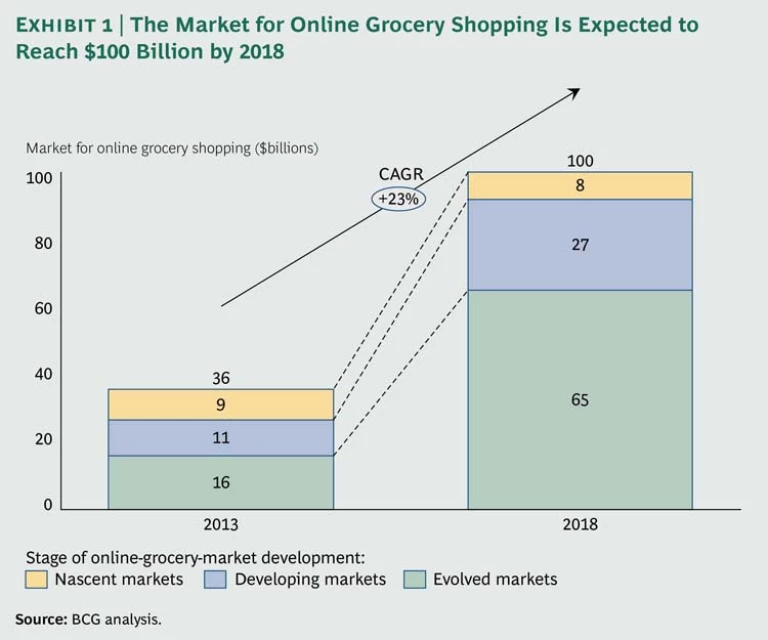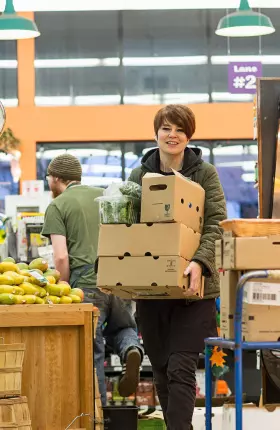Ask most industry executives about the prospects for online grocery shopping, and you’ll encounter hesitancy, if not skepticism. Ask consumers—especially younger, more affluent consumers and families—and they’ll tell you that they are excited by the idea. They wonder why the industry has been slow to deliver.
Online grocery shopping has yet to take off in most countries for many reasons—cost, logistical complexity, and the prospects for profitability key among them. There’s also the fact that many of the business’s early pioneers went bust.
We believe that the prevailing doubtful view is about to hit its expiration date. We expect the global online grocery market to reach $100 billion by 2018. (See Exhibit 1.) Based on new consumer research in eight countries, as well as on our experience with leading companies around the world, we also believe that establishing profitable online grocery operations is not only possible, it is essential for those that want to continue to grow and maintain market
Skeptics will point to the early failures and the fact that even today plenty of players still struggle to hit volume and profitability targets. High costs for delivery and the picking and packing of orders, combined with the need for flawless execution to keep customers coming back, make the online game challenging, to say the least. Cannibalization and different ways of accounting for costs complicate fair comparisons. Still, we believe that grocers in most markets can establish profitable, substantial online businesses with positive returns on investment and healthy margins within a period of a few years. Companies as diverse as Tesco and Fresh Direct have done it. And even if a grocer does not believe that it can drive incremental profits through an online service, it nonetheless needs to act or risk losing out in a race for omnichannel sales.
Grocers are pursuing a broad range of models and approaches, but we have identified four fundamental imperatives for building a successful online grocery business. This game plan can be applied to most markets and company circumstances:
- Don’t wait. Seize the opportunity now to lock in core customers and drive share.
- Avoid the costly last mile. Start out with the “click and collect” model, in which a customer chooses goods online and then picks them up at a store or a dedicated facility, and add home delivery in selected areas only after sufficient local scale has been achieved.
- Target affordable differentiation. Invest in the drivers of online satisfaction. Focus on the elements of the customer value proposition that will attract and retain shoppers while keeping a careful eye on the economics of execution.
- Evolve and adapt. Whatever model a grocer begins with will need to evolve over time as the market and customer base—and the company’s own capabilities—develop. Plan a journey with a realistic timetable and return targets.







